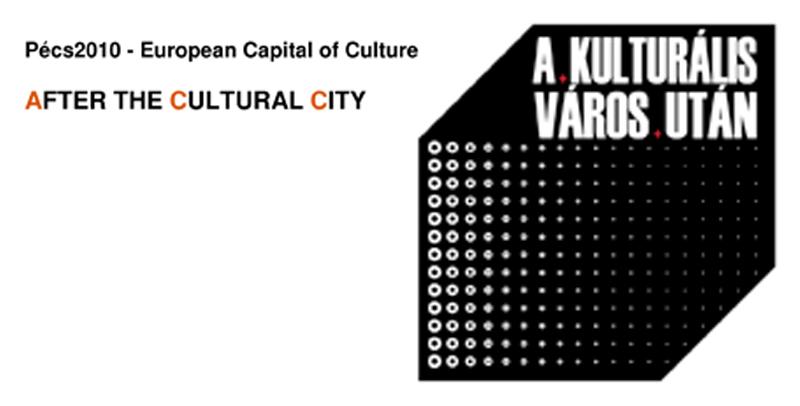After the Cultural City

New Positions for Culture in Urban Development
From 24th to 25th of September 2010, international experts will discuss possibilities and strageties of culture-led urban development at the international conference „ After the Cultural City“ in Pécs, Hungary.
In the course of the post-industrial transformation of Western societies, culture became a definitive element in urban development. By the end of the 1990s, culture-led planning became a framework dominating urban strategies of First World cities. The concept of culture-led urban development suggests that the extension of cultural infrastructures, institutions and programs in cities leads to improvements in social integration and quality of life, invites new industries, creates jobs and attracts trained workforce and consumer tourism. While the new development paradigm placed a previously unknown emphasis on so-called soft, social and anthropological elements of urban development, the results of such programs pided professional reflections which often strongly criticized cultural development projects for their gentrification effects, social engineering ambitions and unsustainable evolution patterns.
From 24th to 25th of September 2010, international experts will discuss possibilities and strageties of culture-led urban development at the international conference „ After the Cultural City“ in Pécs, Hungary.
In the course of the post-industrial transformation of Western societies, culture became a definitive element in urban development. By the end of the 1990s, culture-led planning became a framework dominating urban strategies of First World cities. The concept of culture-led urban development suggests that the extension of cultural infrastructures, institutions and programs in cities leads to improvements in social integration and quality of life, invites new industries, creates jobs and attracts trained workforce and consumer tourism. While the new development paradigm placed a previously unknown emphasis on so-called soft, social and anthropological elements of urban development, the results of such programs pided professional reflections which often strongly criticized cultural development projects for their gentrification effects, social engineering ambitions and unsustainable evolution patterns.
The goal of the ‘After the Cultural City’ conference is to rethink the possibilities of culture-led urban development in the post-crisis economic, political and social climate, to assess its limits, its remaining and new relevant targets in Central and South East Europe and to outline new possible ways of development for Pécs and other cities in the region. The conference, inviting internationally known theorists, policy makers, sociologists, art and architectural historians, cultural activists and practicing architects and urban planners, is organized around questions related to the international transfer of concepts and policies, the legacy of the Creative City after the economic crisis, the relationship of infrastructures and new technologies to the access to culture, and the role of cultural innovation in regenerating peripheral neighborhoods and regions.
International Conference,
Pécs, Hungary, September 24-25, 2010
Keynote speakers:
Franco Bianchini, Cristophe Girard, Juan Herreros
International Conference,
Pécs, Hungary, September 24-25, 2010
Keynote speakers:
Franco Bianchini, Cristophe Girard, Juan Herreros
